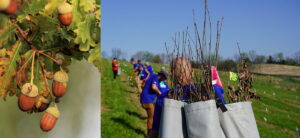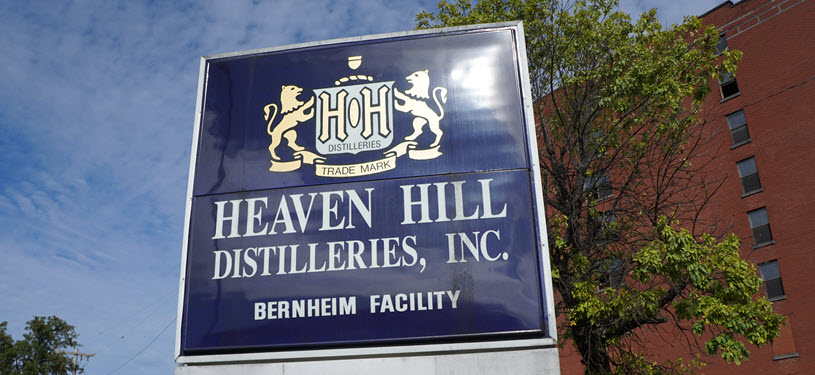
Heaven Hill and its bio digester partner STAR BioEnergy have proposed a major investment in the local community with a $5 Million gift in an effort to get their project moving. Heaven Hill and STAR BioEnergy have been trying for several months to get their neighbors to approve the construction and operation of bio energy plant on the grounds of the distillery. The bio energy plant would take the spent grains from the bourbon making process and turn it into renewable energy. Today, about 30-40 trucks mostly from farms take away a portion of the spent grains while the remainder is sent down the drain.
“We at Heaven Hill Brands are very pleased to see this project moving forward,” said Max L. Shapira, President, Heaven Hill Brands. “Environmental sustainability is a core value we share with the city, and we feel this project brings tremendous benefits to the company, the environment and our community neighbors.”
Rendering of STAR BioEnergy Bio Digester Facility
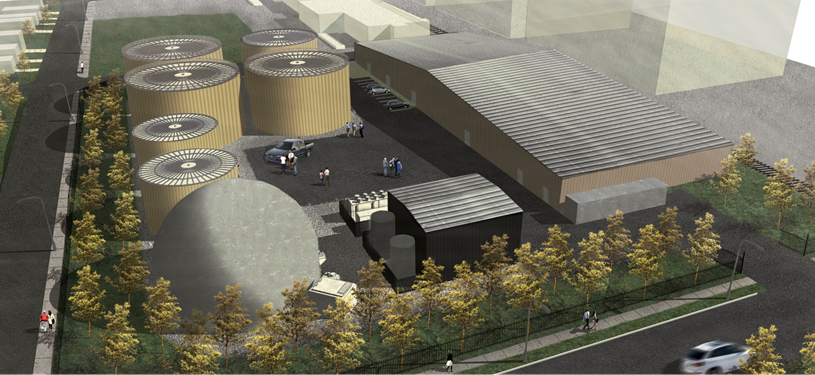

You can learn more about the bio energy making project from these related stories.
Heaven Hill $40 Million Plan to Convert Spent Grain into Biogas Runs into Opposition
School Board Endorses Biogas Digester at Heaven Hill Distillery
Heaven Hill vs. Toyota: 2 Stories of Renewable Energy – 1 is BullSh*t
What is an Anaerobic Digester & How Does It Create Renewable Energy?
Louisville Mayor Greg Fischer says, “Star BioEnergy and Heaven Hill have stepped up to the plate and proposed an unprecedented community benefits agreement representing a $5 million investment in West Louisville.”
“After months of community discussions, we now have a project that does two things: First, it creates an environmental win for all of Louisville, and second, it addresses specific needs in the west Louisville community where it will be based,” said Fischer.
Metro Council District 3 Representative Mary C. Woolridge has reluctantly decided to support the project. She decided that she could fight the project and it would move forward with very little benefit to the local neighborhood or she along with other community leaders could work with the company to get the most they could from the plant. Woolridge says, “Today, I stand here reluctantly, I stand here reluctantly supporting this next step. It sends, it sends another message to West Louisville, that their concerns are secondary to the almighty dollar.”
Community Members Tour the Heaven Hill Bernheim Distillery
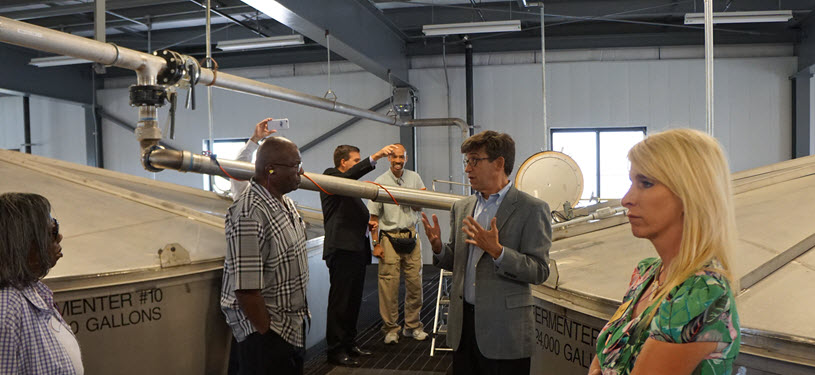

The $32 million project will generate revenue for STAR BioEnergy through the production of green energy biogas – the product of a biodigester that will recycle the spent grains from bourbon production at the Bernheim Distillery. The process will save money for Heaven Hill and reduce impacts on the environment. 85% of the plants waste would be provided by the distillery, the remaining 15% will arrive from other sources such as food waste, fats and oils and other organic material.
Key Elements of the Commitment to the Community
The historic Schenley Distillery Building, along with about four acres of adjacent land, will be donated to the community for educational purposes. The $1.5 million gift will be overseen by one or more universities; discussions are under way with Simmons College and Kentucky State University. The campus may be used for one or more of the following:
- Job training
- College instruction
- Community center office space
- Urban gardening and hydroponics programs
- Athletic facilities
The 1937 Art Deco building at 822 S. 15th St., which is listed on the National Register of Historic Places, was used for bottling and other distillery-related work.
Historic Schenley Distillery Building
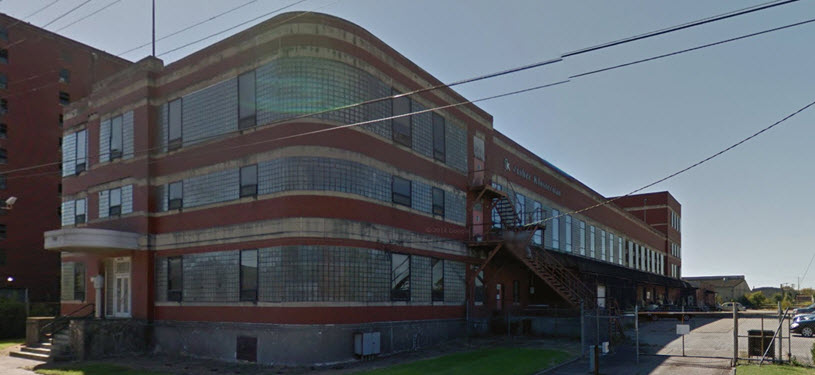

How will the $5 Million Dollar Fund by Allocated?
The companies pledge to invest $3.5 million to create a West Louisville Community Benefits Fund – with $1 million in the first year, and annual contributions of $250,000 over the next 10 years. The Community Foundation of Louisville would oversee the fund, and a committee of community leaders would award grants focused on increasing educational attainment, advancing job training, fostering entrepreneurship and economic development and improving healthy living.
Other Community Benefits and Commitments
Jobs – The investment will create an estimated 100 construction jobs and STAR BioEnergy has committed to set minority hiring priorities. The company will also collaborate with Kentuckiana Works and the Louisville Urban League to find as many community candidates as possible to fill the operating jobs created by the project.
Healthy Living – The facility will include on-site air monitoring, and data will be shared with the Louisville Metro Air Pollution Control District. The company will provide free fertilizer, a product of the biodigester, for community gardens.
Local Sourcing — At least 85 percent of the organic feedstock will come from Heaven Hill and other west Louisville sources, such as food processing companies. The spent grains from Heaven Hill will be delivered through underground pipes to the STAR BioEnergy facility, and other material will be shipped in tanker trucks. The company will limit incoming tanker trucks of feedstock to 10 each day, a 65 percent reduction in the current volume of trucks hauling spent grains from the distillery.
Communications – Residents within a three (3) block radius will receive status updates on at least a quarterly basis, including: construction progress, hiring opportunities, operational matters, and other relevant news.
Formal Proposal Heading to Board of Zoning
STAR BioEnergy will seek formal approval of the facility at 17th and Maple streets from the Louisville Board of Zoning Adjustments. The company has already been approved for state incentives for the project through the Kentucky Economic Development Finance Authority.
If approved by the local board, construction of the facility could begin in spring 2016, and the facility could begin operations by the end of 2016, said Steven Estes, CEO of STAR BioEnergy.














